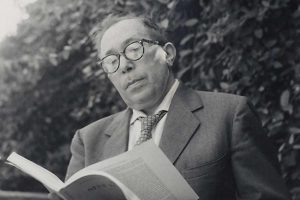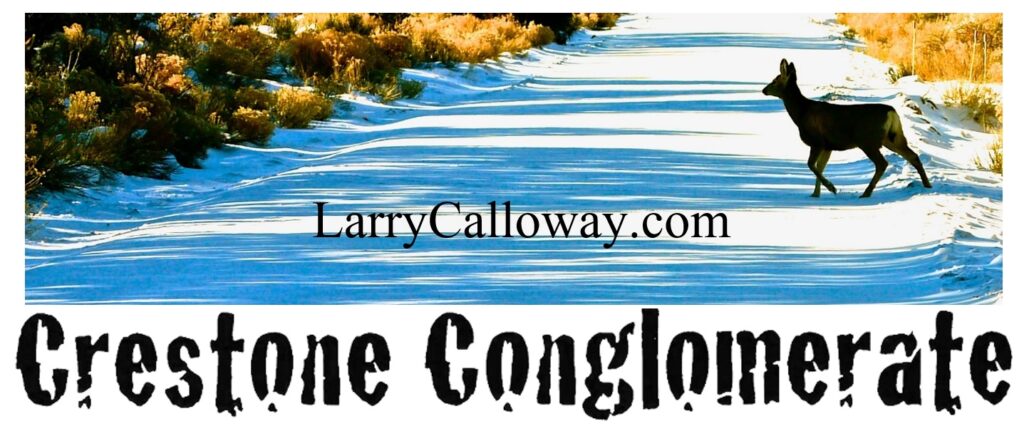The neo-cons in the George W. Bush administration never documented what they owed to Leo Strauss. All I recall is that they claimed to have been students of philosophy under the brilliant refugee from Nazi Germany. By mere association with these U.S. politicians he has been “accused,” according to the Stanford Encyclopedia of Philosophy, of being “the intellectual godfather of the neo-conservative political movement” and therefore of the Iraq war (18 years after his death).
 My speculation is that what rang a bell for neo-con leader Paul Wolfowitz was the Strauss commentary on Spinoza and Maimonides in Persecution And The Art Of Writing. The thesis of this book, as described by Stanford, is this: “The possibility of persecution gives rise to a certain type of writing that allows one set of the readers, the majority, to receive one message while allowing a second set of readers, the philosophical elite, to take away another message.”
My speculation is that what rang a bell for neo-con leader Paul Wolfowitz was the Strauss commentary on Spinoza and Maimonides in Persecution And The Art Of Writing. The thesis of this book, as described by Stanford, is this: “The possibility of persecution gives rise to a certain type of writing that allows one set of the readers, the majority, to receive one message while allowing a second set of readers, the philosophical elite, to take away another message.”
In other words, Strauss legitimized forked messages. It does not bend the logic of the “noble lie” of Plato or even the “skillful means” of Buddhism to apply this esoteric strategy to the political deception leading to the invasion of Iraq. Wolfowitz, Condoleezza Rice, Colin Powell, Dick Cheney and other political stars promoted the American invasion with an assertion that Saddam Hussein had “weapons of mass destruction.” This foggy term could denote almost any agent of war, but a frequent talking point attached to it by these advocates, especially Rice, narrowed it to nuclear weapons. She said, “We don’t want the smoking gun to be a mushroom cloud.”
The WOMD alarms were false. Nuclear weapons were never found in Iraq. It was a ruse, to use a Strauss term. In his extensive commentaries on Spinoza, Strauss presents the persecuted 17th Century philosopher as an exemplar of writing between the lines, subtle contradiction and other esoteric defenses.
“He explicitly admits that there are good or legitimate ruses. If the statesman is under an obligation to employ all kinds of ruses in the interest of the material welfare of the ruled, the same duty must be incumbent on those to whom nature has entrusted the spiritual guidance of mankind, i.e., on the philosophers,” says Strauss.
Spinoza, who denies miracles, does not doubt the miraculous revelations of the Old Testament prophets — such as Ezekiel’s wheel or Elijah’s chariot. “We can affirm, without reservation, that the prophets perceived God’s revelations only with the aid of the imagination, that is, by the mediation of words or of images,” he says, adding artfully that they “might be either true or imaginary.”
The prophets taught morality. Moses by contrast laid down the law in order to govern. Spinoza says subtly that Moses “believed or at least wished to teach” divine personality characteristics. More directly, Strauss says Spinoza’s point was “that belief in God’s anger is required, not for man’s ultimate perfection, but for the good ordering of civil society.”
Spinoza is hard to read not only because of this artful dodging but also because of his philosophical terms, like “substance and attribute,” which Strauss says are now “outmoded.”
And this brings us to “God” as a metaphysical term. Much has been made of Spinoza’s aside in The Ethics — “Deus sive Natura” — which was not included in the Dutch translation from Latin. God or nature is taken to mean God is nature and nature is God. Therefore, to use a term invented two centuries after Spinoza, he is a pantheist.
He had to correct the bird-watcher implications of pantheism. In a letter to a correspondent who worried that he was confusing God and Nature, he says, “I maintain that God is, as they say, the immanent, but not the transitive, cause of all things.” He adds that some people think his Theological-Political Treatise “rests upon the assumption that God is one and the same as Nature (by which they understand a certain mass, or corporeal matter). This is a complete mistake.”
In a footnote in The Ethics, his other essential work, he says, “By Nature here I do not understand only matter and its affections, but in addition to matter, infinite other things.” In other words, Spinoza is not a materialist.
“All things are made through the power of God,” he says. “Because the power of nature is nothing but the power of God itself, it is certain that insofar as we are ignorant of natural causes, we do not understand God’s power.”*
So he departed from the English philosophers like Locke, who viewed wilderness as “wasteland” to be developed. As Strauss put it, “One cannot think of conquering nature if nature is the same as God. Yet Spinoza restored the dignity of speculation on the basis of modern philosophy or science, of a new understanding of ‘nature.’”
It is a deep understanding “under the aspect of eternity,” informed by what he calls “an intellectual love of the the universe.” Yet, as Strauss puts it: “According to his last word on the subject, the highest form of knowledge, which he calls intuitive knowledge, is knowledge not of the one substance or God, but of individual things or events.”
This is mindfulness, the basis of the teachings of Thich Nhat Hanh. I once walked with him and his followers. “If we practice walking meditation, we walk just for walking, not to arrive anywhere,” he wrote in his final book. “We have to be alive with each step, and if we are, each step brings real life back to us.” It was like that. It was in Hanoi in 2008, a peaceful demonstration of mindfulness in the province of a hostile government.
Mindfulness is awareness that the busyness of imagination is an unreal distraction. I watched Thich Nhat Hanh turn back questions about the injustice of suffering or even the question of life after death. His message was don’t waste time with such things. Turn to life as it happens. And this, to me, is the meaning of Spinoza’s proposition: “A free man thinks of nothing less than death.”
The Hanoi walk was a refuge from politics. A group of women standing beside the historic pathway suddenly put their hands together in a gesture of respect, subverting government security. Three and a half centuries before, a persecuted philosopher who critiqued the politics of religion took refuge in Nature.
Spinoza was a liberal democrat except for a curious departure from the doctrine of separation of church and state, which stems from his contemporary, Hobbes, who influenced the framers of the U.S constitution. Spinoza lets the state have religion, ceding control of the cultural forces of piety and ritual in exchange for freedom of thought and its expression.
Strauss, according to Stanford, “employs the term ‘theological-political predicament,’ to diagnose what he contends are the devastating philosophical, theological, and political consequences of the early modern attempt to separate theology from politics. However, Strauss in no way favors a return to theocracy.”
When the neo-cons began claiming Strauss paternity, journalists took tried to find out who he was. The New York Times, with no experts of there own on board, republished a Der Spiegel analysis by Geehard Spörl that made a point of current significance as U.S. politics seems divided between one religious party and one secular party.
The article said Strauss believed that “without the inner cohesiveness faith provides, states could not exist. For this reason, according to Strauss, religion serves as a binding agent in a stable social order. It is, admittedly, the opium of the people, but it is also an indispensable opium. In Strauss’ view, liberal democracies such as the Weimar Republic are not viable in the long term, since they do not offer their citizens any religious and moral footings.” And we know what succeeded Weimar.
*Power (potentía) to me is what was called potential energy as opposed to kinetic energy in Physics 101. Today it might be called bound energy as opposed to free energy. So? I think of the Trinity test, when the binding energy of the atomic nucleus was first released in the New Mexico desert. Without this power bound all would be chaos. Or think of life on earth and the power that preserves species.
This article has been significantly revised since it was originally posted.
